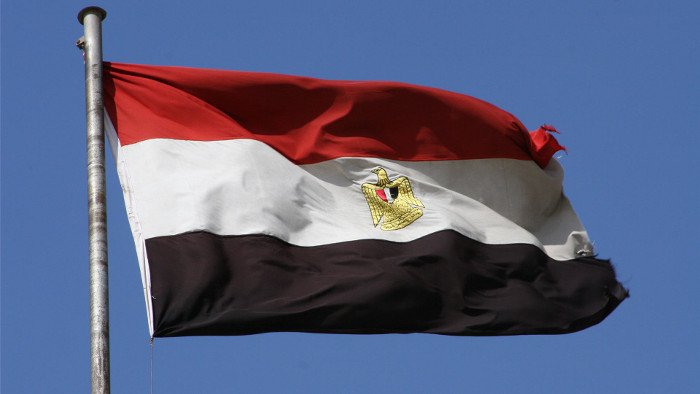Fitch Ratings has affirmed Egypt's Long-Term Foreign-Currency Issuer Default Rating (IDR) at 'B+' with a Stable Outlook.
KEY RATING DRIVERS
Egypt's ratings and Outlook are supported by its recent track record of fiscal and economic reforms, which the authorities are furthering, as well as its large economy, which has demonstrated stability and resilience through the global health crisis. The ratings are constrained by still large fiscal deficits, high general government debt/GDP and domestic and regional security and political vulnerabilities, for example as reflected in lower scores on World Bank governance indicators compared with the 'B' median.
Egypt's economy has outperformed the vast majority of Fitch-rated sovereigns over the past year. A low incidence of coronavirus cases and deaths allowed for a measured public health response and supported resilient domestic demand, even as tourism and other export-oriented sectors sagged. We forecast real GDP growth of 3% for the fiscal year ending June 2021 (FY21), after 3.6% in FY20 and 5.6% in FY19. The recovery of tourism to Egypt and shipping through the Suez Canal, supported by a global economic recovery, will drive an increase to 6% growth in FY22 (above potential growth). Meanwhile, inflation has continued to trend down, and we expect it to average 5% in FY21 and 7% in FY22, broadly in line with FY20 but well below the FY19 rate of over 13%.
Moderating inflation and exchange rate stability allowed the Central Bank of Egypt (CBE) to ease policy in support of economic and credit growth. The CBE cut its headline overnight deposit rate by 300bp in March 2020 and 100 bp in November 2020, to 8.25%. It also guaranteed EGP100 billion (1.7% of GDP) of lending by banks to targeted sectors at preferential interest rates, alongside a raft of regulatory forbearance measures. We expect bank credit to the private sector to grow 20% yoy in FY21, in line with FY20 and up from 12% in FY19.
In our view, minimal currency volatility in 2020 reflects a degree of intervention from the CBE as well as public sector banks making FX available at the prevailing exchange rate, at the cost of part of their net foreign assets. In our view, continued exchange rate rigidity poses risks to macroeconomic stability and current account performance in the medium term, although it has supported non-resident inflows into the Egyptian pound government bond market. Real effective appreciation in recent years has eroded a large part of the competitiveness gain from the 2016 devaluation. Continued real appreciation could weigh on growth and the current account deficit and could require another sharp exchange rate adjustment in the future, in turn potentially undermining price stability and domestic confidence. Nevertheless, the CBE maintains that it is committed to exchange rate flexibility, intervening only to mitigate disorderly market movements.
Foreign investor participation in Egypt's bond market is itself a growing point of potential external vulnerability, even as it supports fiscal and current account funding flexibility. Foreign holdings of government T-bills and T-bonds had recovered to USD28 billion by February 2021 (over 10% of government domestic debt), in excess of their level at the start of 2020, from a trough of less than USD10 billion in June. Attractive real interest rates, Egypt's relatively strong economic performance and reforms to market structure could attract further inflows, but these flows could quickly reverse in response to any confidence shock, putting pressure on Egypt's foreign exchange liquidity, interest rates and the exchange rate.
Egypt's current account deficit narrowed to 3.1% of GDP (just over USD11 billion) in FY20 from 3.6% in FY19 as an increase in remittance flows from Egyptians working abroad and a mild increase in non-oil exports offset a decline in tourism receipts. We forecast only a marginal widening of the current account deficit in FY21-22. Remittances and tourism receipts will fall further as the full impact of the coronavirus shock crystallises in FY21, but we expect that this will be largely offset by the compression of import demand.
Egypt's external funding conditions have remained broadly favourable. The government has issued about USD4.6 billion in external bonds in FY21, following USD5 billion in FY20. About USD3.3 billion remains to be disbursed under the USD5.2 billion Stand-By Arrangement (SBA) agreed in June last year, including the USD1.7 billion disbursement approved by the IMF in December. In FY20, Egypt also received USD2.8 billion through the IMF's Rapid Financing Instrument. Net FDI remained relatively resilient at USD7.1 billion in FY20, and we forecast USD5.5 billion for FY21.
Egypt's net external debt, including non-resident holdings of local debt (at 18% of GDP in FY20) is significantly smaller than the current or forecast 'B' category median. Although net external debt will rise in nominal terms, we expect it to remain contained as a share of GDP. Government borrowing and a return of non-resident portfolio investors allowed the CBE and commercial banks to partly rebuild their net foreign asset positions. The CBE's official gross foreign reserves had recovered to over USD40 billion by February 2021 (about five months of external payments), after dipping to USD35 billion in May as the CBE intervened to support the exchange rate. Nevertheless, reserves remain well below their high of nearly USD45 billion in early 2020.
The CBE's net foreign assets (at just over USD13 billion in January) remain significantly lower than its gross reserves. However, CBE's liabilities (USD26 billion in January) are medium to long-term in nature and have repeatedly been rolled over, and we continue to view CBE's gross reserves as the most relevant indicator of its external liquidity. CBE's liabilities mostly consist of deposits by the GCC, a swap line with the People's Bank of China and repurchase agreements with international banks.
Continued economic growth and a modest coronavirus support package has limited the pandemic's fallout on Egypt's public finances. We expect a modest and temporary widening in the general government fiscal deficit to 8.5% of GDP in FY21 (including net acquisition of financial assets), from 7.0% in FY20 and 7.9% in FY19. The government's coronavirus support package amounted to about 1.7% of GDP spread across FY20-21, with most of it supporting vulnerable sectors through additional and accelerated spending, government guarantees, and reduction and deferral of various fees and taxes. These were offset by additional revenue measures of about 0.5% of GDP, as part of the target to raise tax revenue/GDP by 2pp over the next four years (outlined in the draft Medium-Term Revenue Strategy approved by the government).
The coronavirus pandemic interrupted Egypt's progress on debt reduction, and public finances remain a core weakness of the rating. However, we expect debt/GDP to resume a downward path in FY22, and Egypt has significant financing flexibility. We forecast consolidated general government debt/GDP to peak at 90% in FY21, having risen from 88% in FY20 and 84% in FY19, before resuming a downward path. This is significantly above forecast 'B' median debt/GDP, as are debt/revenue and interest/revenue metrics. More than half of general government external debt is owed to multilateral institutions, with which Egypt has good relations, and the domestic banking sector provides a captive investor base for local-currency debt.
Relatively weak governance, together with security and political risks, continue to weigh on the rating. Egypt scores well below the 'B' median on the composite World Bank governance indicator, with recent improvements in some components of the governance score being offset by deterioration in other components. The potential for political instability remains a significant tail risk, in Fitch's view, given ongoing structural problems including deficiencies in governance and high youth unemployment (although the headline overall unemployment rate fell to about 7% in 4Q20, after approaching 10% in 2Q20). Intermittent security issues have previously hit the economy via the tourism sector.
There has been stabilisation in the specific geopolitical risks relating to disagreements with Ethiopia over water resources and Turkish involvement in the conflict in Libya. Egypt has prioritised desalination projects on the Red Sea coastline and continued to push for negotiations with Ethiopia. In Libya, it has reached out to the new interim government.
The government has sought to mitigate the risk of domestic discontent by bolstering social safety nets (including cash transfer schemes), maintaining food subsidies, increasing the minimum wage and pensions, boosting electricity provision and implementing some structural reform measures to improve the business environment, while the space for political opposition and freedom of expression is restricted, in our view.
ESG - Governance: Egypt has an ESG Relevance Score (RS) of 5 for both Political Stability and Rights and for the Rule of Law, Institutional and Regulatory Quality and Control of Corruption, as is the case for all sovereigns. Theses scores reflect the high weight that the World Bank Governance Indicators (WBGI) have in our proprietary Sovereign Rating Model. Egypt has a low WBGI ranking, scoring at the 24th percentile, reflecting generally weak governance and political risks.






































